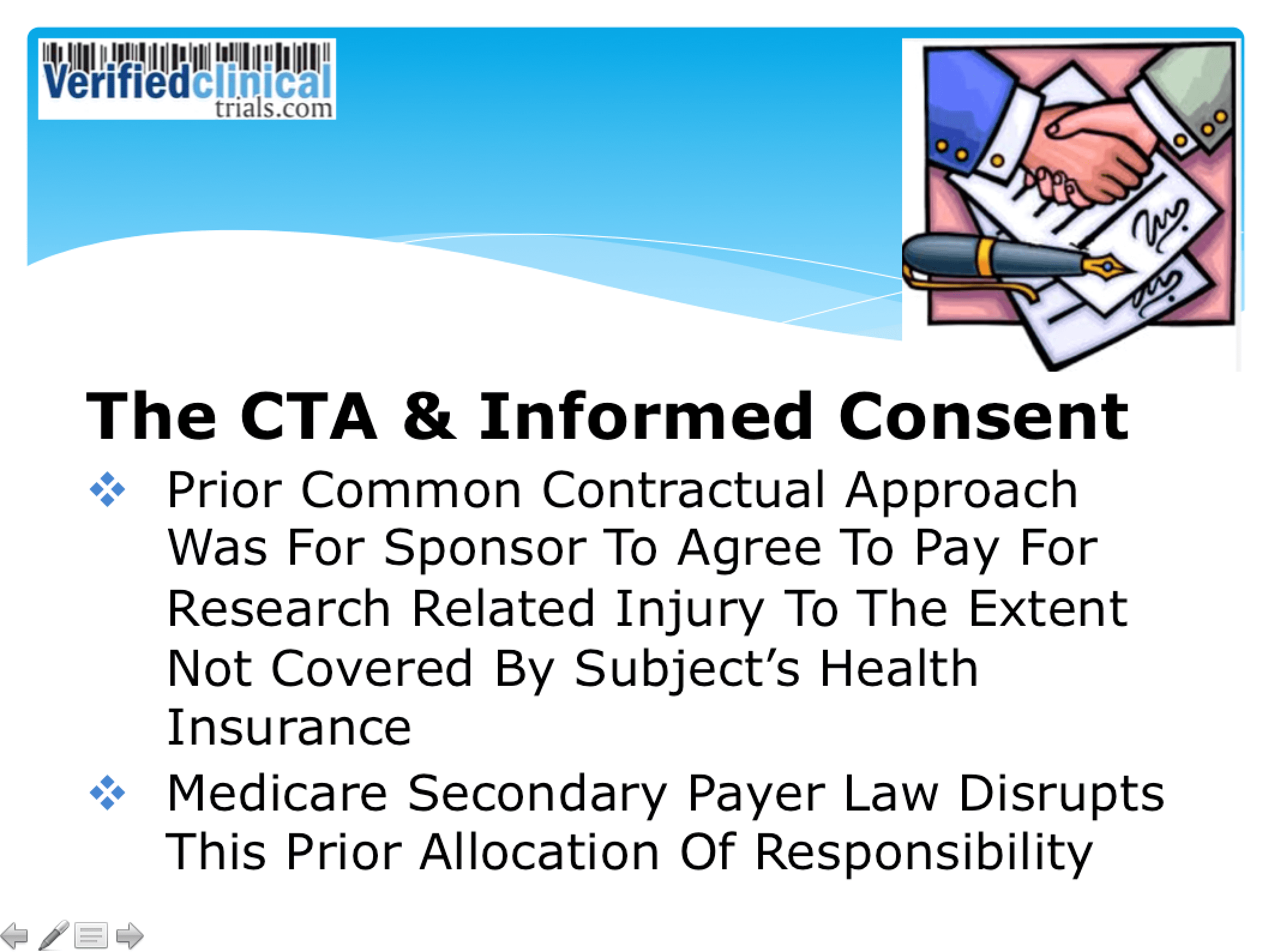Verified Clinical Trials answers the question of how and when does the Medicare Secondary Payer Law (MMSEA section 111) apply to clinical trials. It all begins with informed consent and the assumption of liability on the part of the pharmaceutical clinical trial sponsor. Once the sponsor offers to cover costs of medical care following an injury, the have assumed liability.
The traditional and commonly accepted method was to have the clinical trial sponsor pay for any injuries after the subject’s insurance company paid for any expenses. However, the Medicare Secondary Payer Law disrupts this customary arrangement and makes the clinical trial sponsor the primary insurer.
It is important to realize however, that only adverse events that are felt to be causally related to the investigational compound or device are to be reported to Medicare. Additionally, exacerbation of pre-existing health issues and failure of the research site to adhere to the protocol causing the actual injury are not the responsibility of the clinical trial sponsor.
Medicare is expecting pharmaceutical clinical trial sponsors to begin the necessary testing and have a process in place now.





